How Much Will The Falling US Interest Rates Affect Singaporean Homeowners?
September 28, 2024
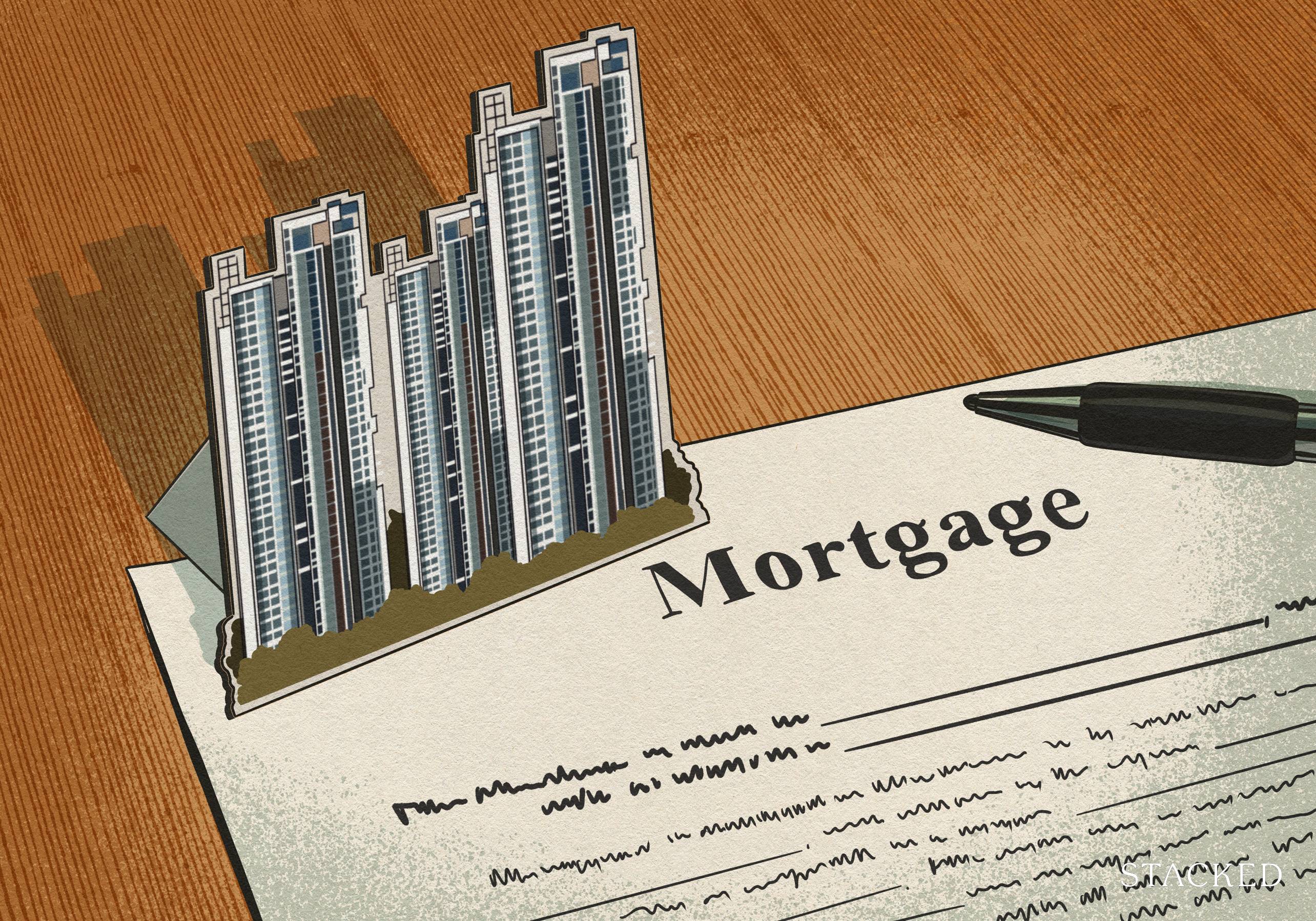
The United States Federal Reserve (the Fed) recently cut interest rates by 0.5 per cent. This is a big move, as the Fed typically raises or lowers the interest rate in smaller increments (0.25 per cent). This has a knock-on effect on interest rates in Singapore, and it’s likely that home loan rates will move down, in tandem with US rates. But it may be too quick to break out the proverbial champagne: Singapore has seen the effects of low interest rates before, and it’s not always to the pure advantage of homeowners. Here’s what you need to know:
So many readers write in because they're unsure what to do next, and don't know who to trust.
If this sounds familiar, we offer structured 1-to-1 consultations where we walk through your finances, goals, and market options objectively.
No obligation. Just clarity.
Learn more here.
A quick rundown on why the Fed’s rate cut matters to your mortgage
For those using bank home loans (not HDB loans), you may be on a SORA loan package. The SORA rate is the rate at which your interest is pegged – as SORA moves up or down, your interest rate will follow. SORA is in turn affected by interest rates in the US: as the Fed raises rates, SORA will follow, and vice versa.
The Fed makes its rate cuts in response to the US economy: when there’s a recession or a threat of one, the interest rate is lowered to stimulate the economy. We last saw this at the height of Covid. In 2020, the Fed cut rates to near-zero, and we saw SORA fall to as low as 0.8 per cent.
This wasn’t the first time: we also saw a prolonged period of low interest rates after the 2008 Global Financial Crisis. At the time, the rates were so low even HDB flat buyers sometimes opted to use the bank: for over a decade after the crisis, the interest rate hovered at around two per cent (a little over one per cent closer to the crisis). Borrowers from that time period were very lucky, paying even less than the HDB loan rate of 2.6 per cent.
As of the past two years, interest rates have risen significantly, hovering at over three per cent. This was one of the reasons MAS raised the floor rate for calculating debt servicing ratios, back in 2022.
With the recent jumbo rate cut, however, we may be headed back into a lower interest rate environment.
So a rate cut should mean good news for home buyers, right?
To some degree, yes. If you’re buying with a bank loan, you’ll likely pay less interest compared to the past two years. However, not all loan packages will convey the same benefits. Some of the factors to consider are:
1. Interest rate period
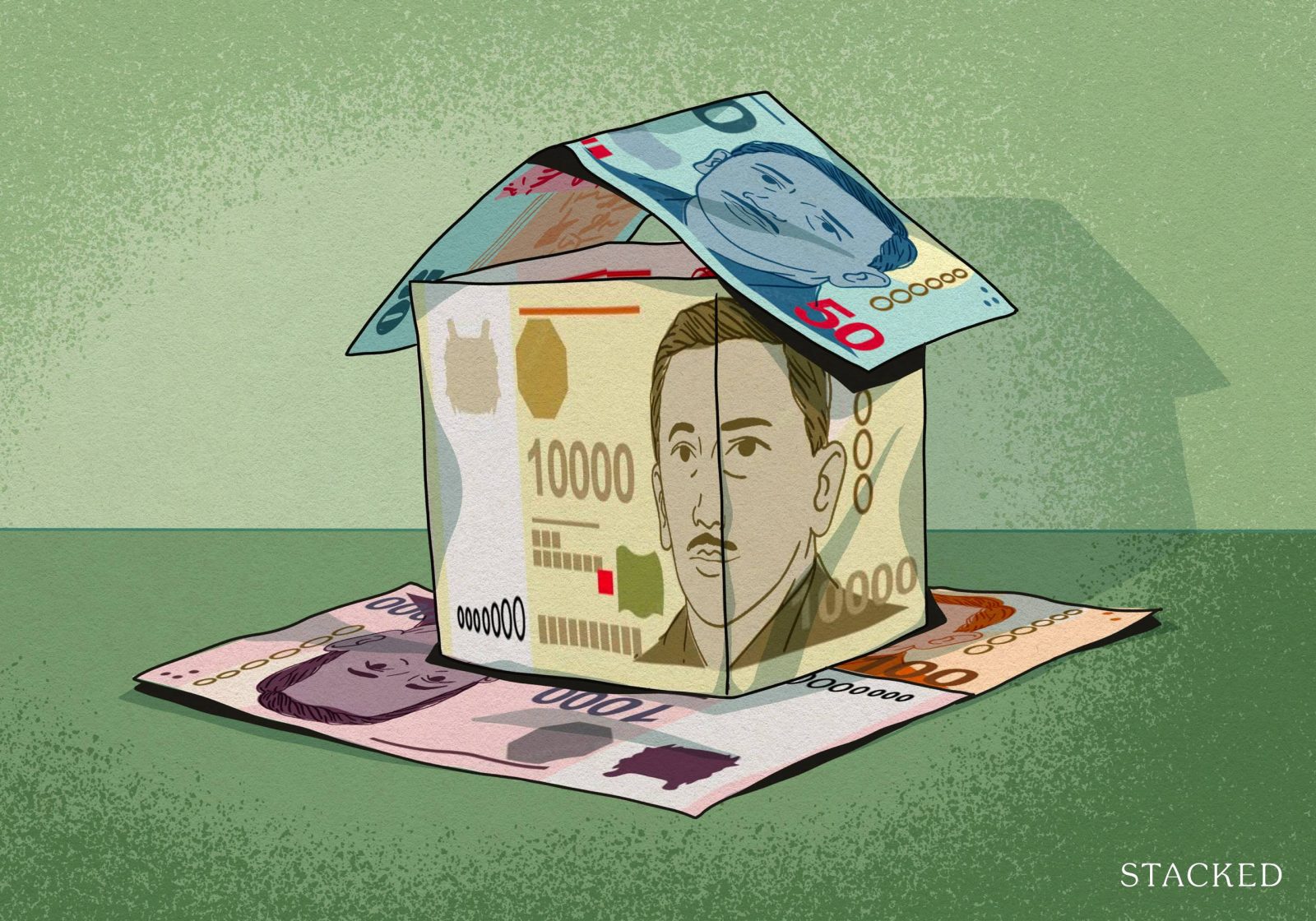
When rates are going down, a shorter interest rate period usually – but not always – brings more benefits. If your loan package is on a one-month (1M) SORA rate, for example, you would theoretically benefit quicker from these rate cuts; that’s because your interest rate is revised to match SORA each month.
If you’re on a longer interest rate period, such as a three-month (3M) SORA, your rates only adjust to match the new SORA rates every three months. So even if the rate goes down, you’re still paying the higher rates from three months prior.
This means the inverse is also true: when rates are rising, the longer interest rate period is preferred (i.e., you’re paying the lower rate from three months ago, when the rates rise). Most homebuyers who got their loans in 2022 would likely have sought a 3M or longer interest rate period, as rates were rising at the time.
That said, this doesn’t always work out as expected, so we’d talk to a mortgage broker for more specifics.
2. Refinancing options for existing homeowners
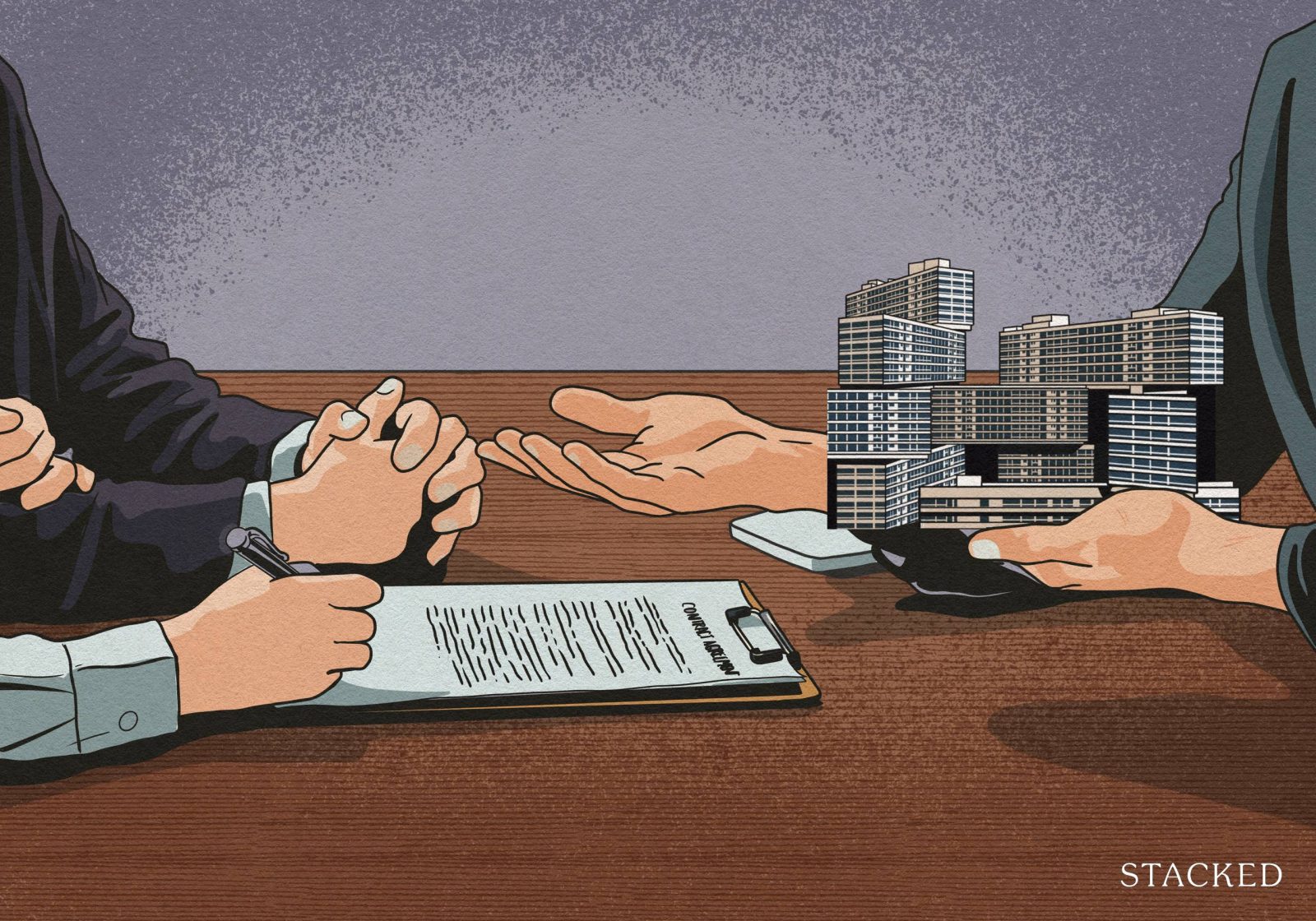
The jumbo rate cut is quite sudden. From 2022 till quite recently, US employment rates were rising, and inflation was becoming an issue (when interest rates are kept low for too long, inflation tends to spiral upward – hence the Fed pushing for higher rates in the aftermath of Covid).
As rates were previously rising, a good number of homeowners opted for features like fixed-rate loans. These loans tend to have lock-in periods of three to five years, during which time there’s a penalty for refinancing. But at the same time, the locked-in rates may be higher than the new, lower rates. This can leave some borrowers stuck in a difficult position if they recently locked in a high fixed rate.
More from Stacked
The Curious Case Of Multi-Million Dollar Coffeeshops In Singapore
Take, for instance, this coffee shop which I frequent, which was sold for $40.5 million. To begin with, I personally…
Attempting to refinance out of a fixed-rate loan could incur penalties of 1.5 per cent of the undisbursed loan amount, in addition to administrative fees. For some homeowners, you may be stuck watching on the sidelines as everyone else gets lower rates.
If you’re lucky though, your bank may offer repricing options, where you can switch to a cheaper loan with the same back; but this isn’t always available.
3. Whether you opted for a SORA loan
For homeowners who got their loan many years prior, you may be using Board Rate (BR) loans, where the interest isn’t pegged to SORA. One example of this was the fixed-deposit rate loans, where the interest rate is based on fixed-deposit products.
Some years ago, these were popular as, in theory, the bank would have a disincentive to raise your interest rate (doing so would mean raising the interest they had to pay on deposits as well).
It’s unclear how your loan will fare in the current situation. If the lower interest rates also translate to lower fixed-deposits rates, you might also see some benefits. But if your interest rates are pegged to a particular tranche or group of fixed-deposit products, where the rates don’t change to match the current market, then you may not see other benefits.
As with point 2, you may also be faced with penalties if you try to refinance out of an existing BR loan.
4. No impact on debt servicing ratios yet
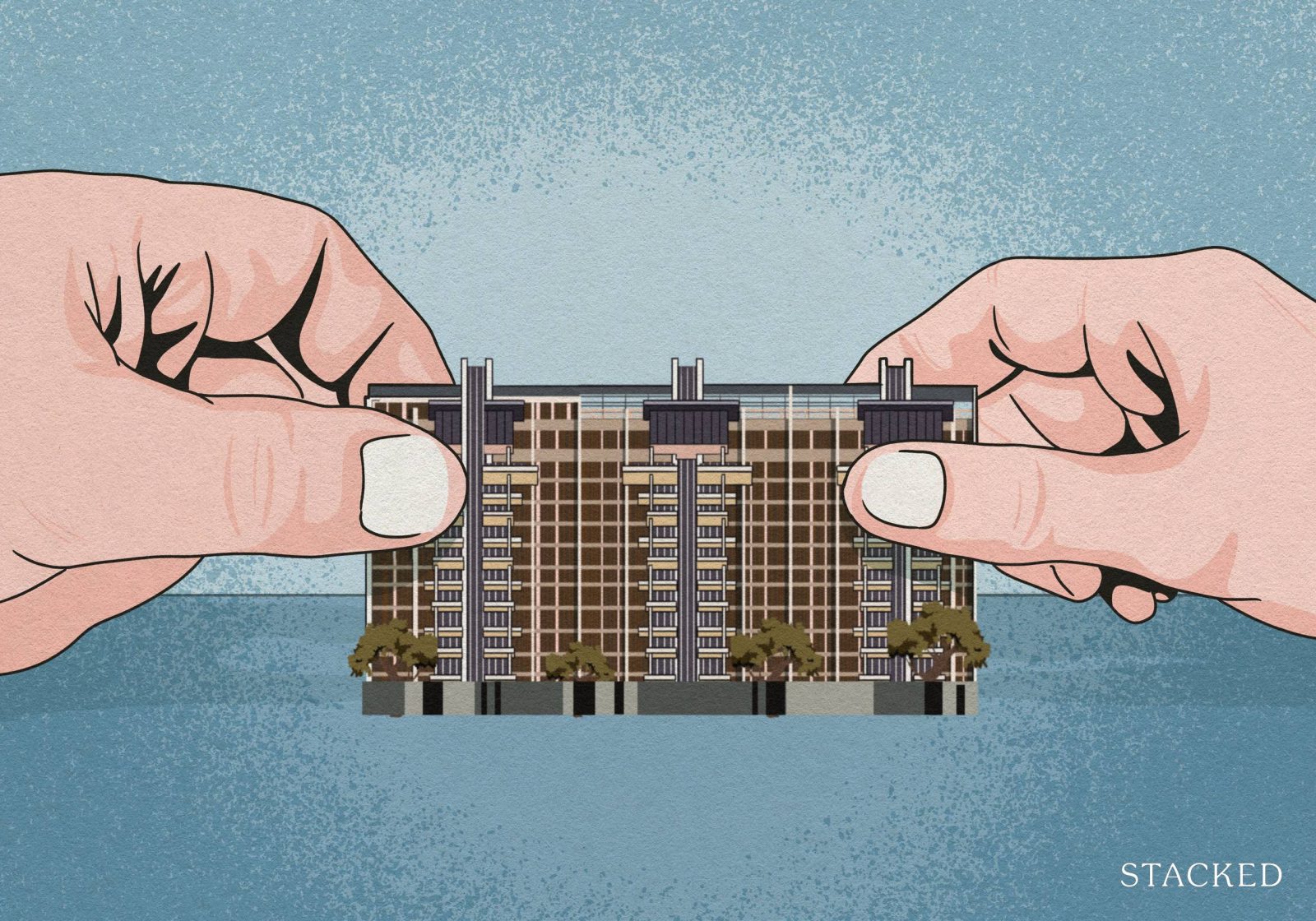
For new homebuyers, the lower rates do not make it easier to qualify under debt servicing ratios like TDSR or MSR. For these calculations, banks use a floor rate of four per cent. For example:
Let’s say that, speculatively, the interest rate falls to 2.8 per cent for your loan. If you borrow $1.5 million for 25 years, your monthly loan repayment is estimated at $6,958 per month.
When determining your TDSR limit, however, the bank applies an interest rate of four per cent, regardless of the actual market rate. So for a $1.5 million loan for 25 years, your loan repayments are projected at $7,918 per month, even if in reality it would be much lower.
So for new home buyers, it won’t be easier to qualify for loans just because the rates drop. At least, not until MAS decides to lower the floor rate in accordance with the market.
But the final concern is the biggest one
When interest rates drop, typically home prices may go up. By coincidence, we just put out an article on resale flat prices this week – and this same article showed how a period of low interest rates contributed to rising prices. This is true for private properties as it is for HDB flats.
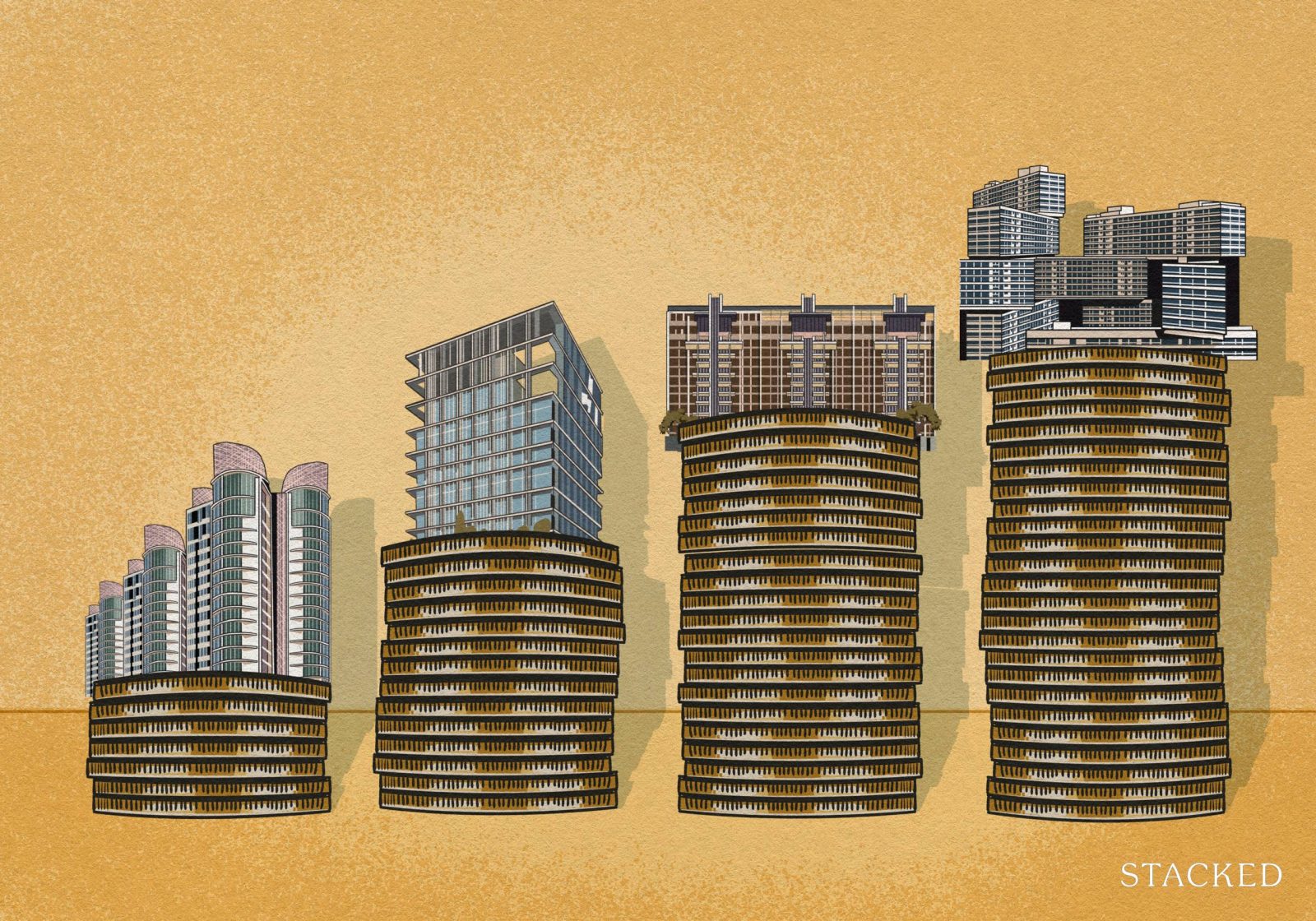
To be clear, we can’t say this is going to be a repeat of the financial crisis, or Covid, or any of the previous low-interest rate years. For starters, we don’t know how temporary all of this is, and if there will be further rate cuts. Second, we’ve just come out of a housing supply crunch: the supply of homes (private and HDB) and GLS sites is higher than ever. This is a different housing situation from both the financial crisis and Covid. The phrase “this time it’s different” is often considered a sarcastic joke when it comes to market movements, but that happens to be true right now.
It’s unlikely home prices will skyrocket like they did in earlier low-interest periods, but cheaper loans could drag out any upward momentum in prices.
At Stacked, we like to look beyond the headlines and surface-level numbers, and focus on how things play out in the real world.
If you’d like to discuss how this applies to your own circumstances, you can reach out for a one-to-one consultation here.
And if you simply have a question or want to share a thought, feel free to write to us at stories@stackedhomes.com — we read every message.
Frequently asked questions
How will the recent US interest rate cut affect my Singapore home loan?
Will lower US interest rates make it easier to qualify for a home loan in Singapore?
Should I refinance my existing home loan now that interest rates are falling?
How does the interest rate period affect the benefits of falling rates for homebuyers?
Could falling interest rates lead to higher home prices in Singapore?
Ryan J. Ong
A seasoned content strategist with over 17 years in the real estate and financial journalism sectors, Ryan has built a reputation for transforming complex industry jargon into accessible knowledge. With a track record of writing and editing for leading financial platforms and publications, Ryan's expertise has been recognised across various media outlets. His role as a former content editor for 99.co and a co-host for CNA 938's Open House programme underscores his commitment to providing valuable insights into the property market.Need help with a property decision?
Speak to our team →Read next from Property Market Commentary

Property Market Commentary How I’d Invest $12 Million On Property If I Won The 2026 Toto Hongbao Draw

Property Market Commentary We Review 7 Of The June 2026 BTO Launch Sites – Which Is The Best Option For You?

Property Market Commentary Why Some Old HDB Flats Hold Value Longer Than Others

Property Market Commentary We Analysed HDB Price Growth — Here’s When Lease Decay Actually Hits (By Estate)
Latest Posts
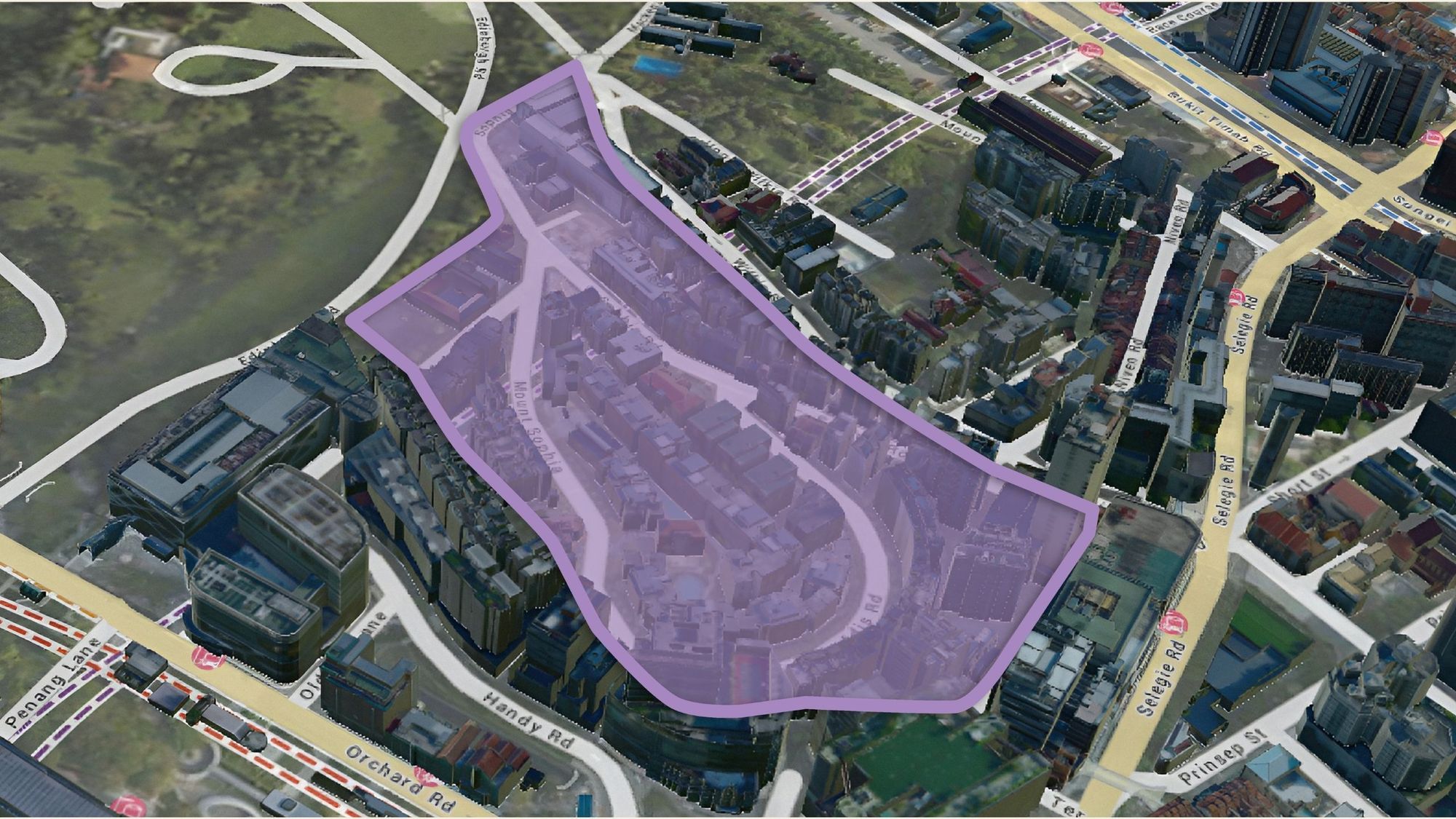
Editor's Pick These Freehold Condos Near Orchard Haven’t Seen Much Price Growth — Here’s Why

Singapore Property News These 4 Freehold Retail Units Are Back On The Market — After A $4M Price Cut

Pro This 130-Unit Boutique Condo Launched At A Premium — Here’s What 8 Years Revealed About The Winners And Losers






































0 Comments